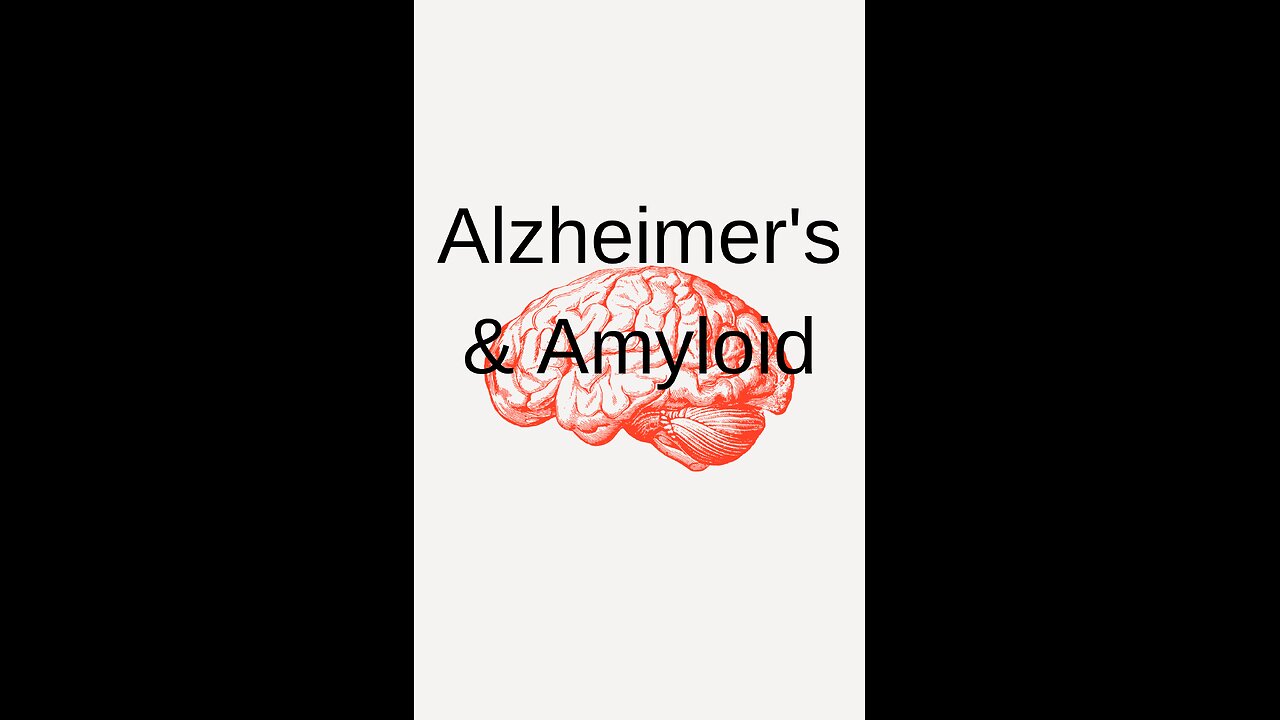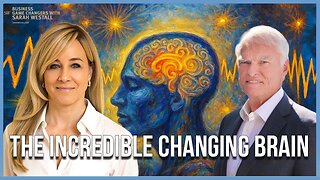Premium Only Content

Drug that doesn't work on Alzheimer's
Alzheimer’s and Amyloid: Understanding the Link to Brain Health
Alzheimer’s disease is closely associated with the buildup of amyloid-beta plaques, abnormal protein deposits that accumulate between brain cells and disrupt communication. These sticky clusters are considered one of the hallmark features of Alzheimer’s pathology, contributing to memory loss, cognitive decline, and neurodegeneration. Research shows that amyloid buildup triggers inflammation, oxidative stress, and damage to neurons, which accelerates the progression of dementia.
Detecting and targeting amyloid plaques is a major focus in modern Alzheimer’s research. Advanced imaging techniques, genetic testing, and innovative therapies aim to reduce or prevent amyloid aggregation, offering hope for early intervention and treatment. Lifestyle factors—such as nutrition, exercise, sleep quality, and vascular health—may also influence amyloid clearance and brain resilience.
By understanding the connection between amyloid and Alzheimer’s disease, individuals can take proactive steps toward brain health, prevention strategies, and potential future treatments.
-
 7:42
7:42
China Uncensored
11 hours agoIndia Has Surpassed China
23.8K11 -
 8:47
8:47
Hollywood Exposed
9 hours agoJoe Rogan and Zachary Levi DESTROY Gavin Newsom’s Lies About California
13.6K3 -
 DVR
DVR
BlackDiamondGunsandGear
3 hours agoInside NEW Glock V Models / Whats Next? / You giving up Glock?
15.5K2 -
 2:05:31
2:05:31
Glenn Greenwald
8 hours ago"Former" Al-Qaeda Leader Welcomed to the White House; The "New TikTok" Clamps Down on Israel Critics: With Influencer Guy Christensen; Dave Portnoy Decries Cancel Culture, Unless His Group is Under Attack | SYSTEM UPDATE #545
130K60 -
 7:30:07
7:30:07
Spartan
8 hours agoNine Sols
11.4K1 -
 2:34:56
2:34:56
SOLTEKGG
4 hours ago🔴 HUGE UPDATE - Veterans Day | Redbull x Dogtag Giveaway
11.9K1 -
 1:23:36
1:23:36
Flyover Conservatives
13 hours agoTough Love for Trump: What Must Change Now to Win Back America - Dennis Michael Lynch | FOC Show
22K4 -
 1:56:43
1:56:43
The White House
5 hours agoAbove, Below & Beyond: A Presidential Special
31K16 -
 1:12:44
1:12:44
Sarah Westall
5 hours agoYounger Brains Have Changed! Human Beings are Different Now w/ Neurologist Dr Jack McCallum
19.9K8 -
 2:24:49
2:24:49
megimu32
4 hours agoON THE SUBJECT: The Movies That Made Millennials — And the Ones That Missed 🎥
16.5K6